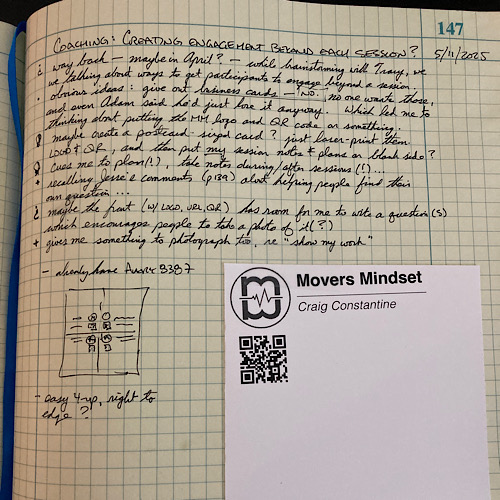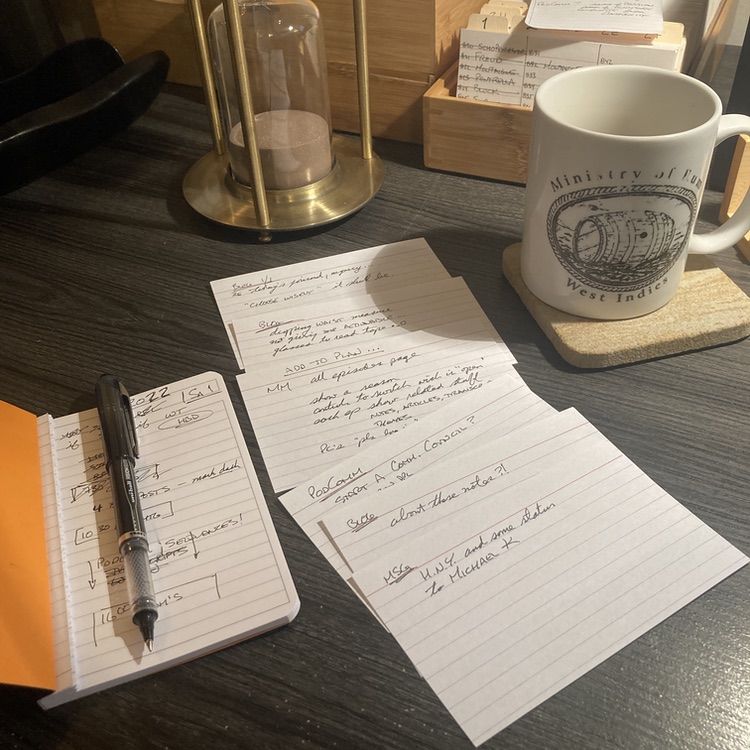I’ve been thinking about ways to get participants to engage after the session. I talked to a few experienced coaches about this, and there doesn’t seem to be a way that works well. Sure, after any session a few students might ask questions. But cultivating engagement beyond that is a big question—everyone I talked to said to tell them how to do it if I figure it out.
My first thought was to imagine something people could take a picture of. (Giving people things like business cards would be silly and wasteful.) Coaching in the context of Movers Mindset, I imagined a printed card with MM logo/name and QR to MM’s web site and lots of room for me to write. I imagined I could write a question on it; thinking it could be interesting enough to entice people to take a photo of it.
But further thinking led me to create this little card. It’s printed on some 4x postcard stock from Avery, where a full sheet is perforated to tear apart. In the phot you can see a little sketch showing how the printed parts are all arranged in the center of the full sheet, enabling printing very close to the final cards’ edges on the two sides that aren’t the actual printing margins.
My idea is that I’ll use these little cards for my notes as I’m preparing for a session. Then, any changes, problems, questions, etc. that come up are easily captured. This way I can close my personal loop of wanting to reflect afterwards into my more permanent notebooks.
And anyone who notices the card I’m holding, (referring to, writing on, stuffing in my pocket…) may want a photo of it. There we go! There’s no “please take a photo of this” pressure. Instead, if someone is interested, I have the perfect thing for them with some notes and details about the session and a QR to reach me. (The MM site has an email list and a contact form to reach me.)
ɕ


